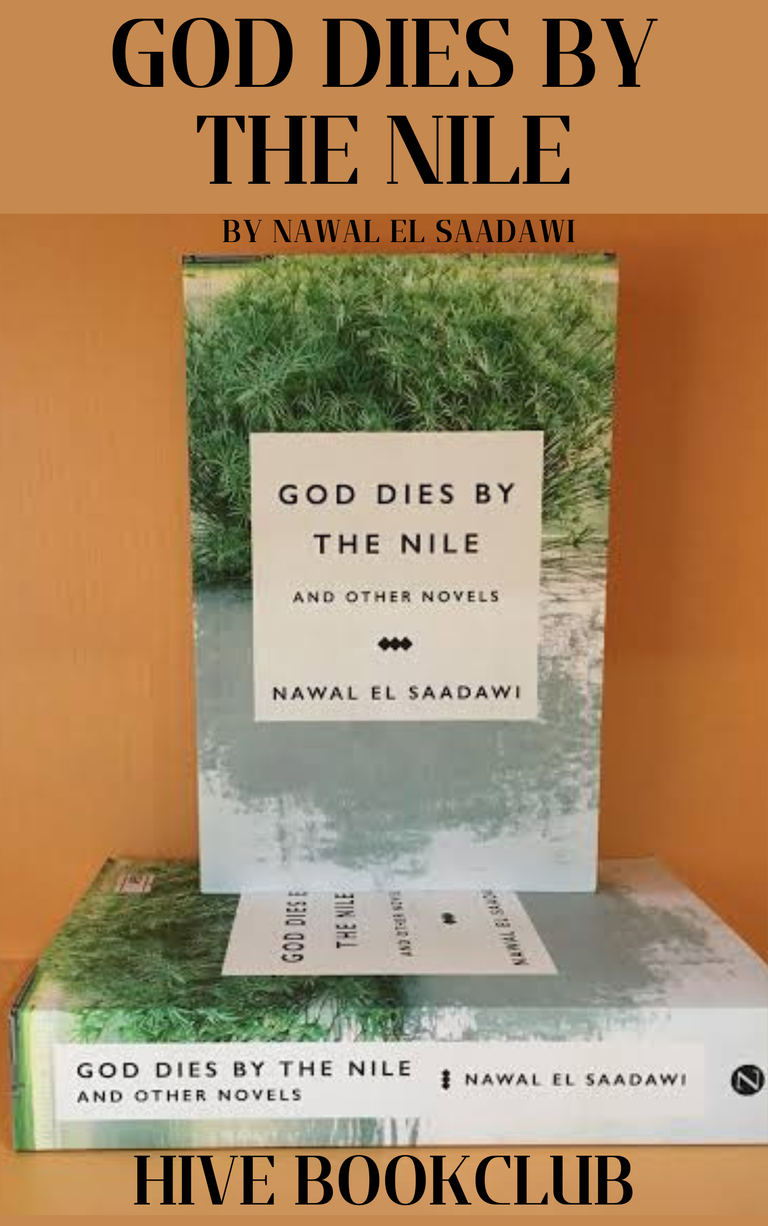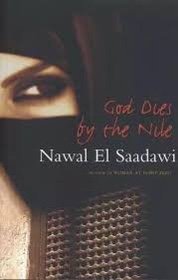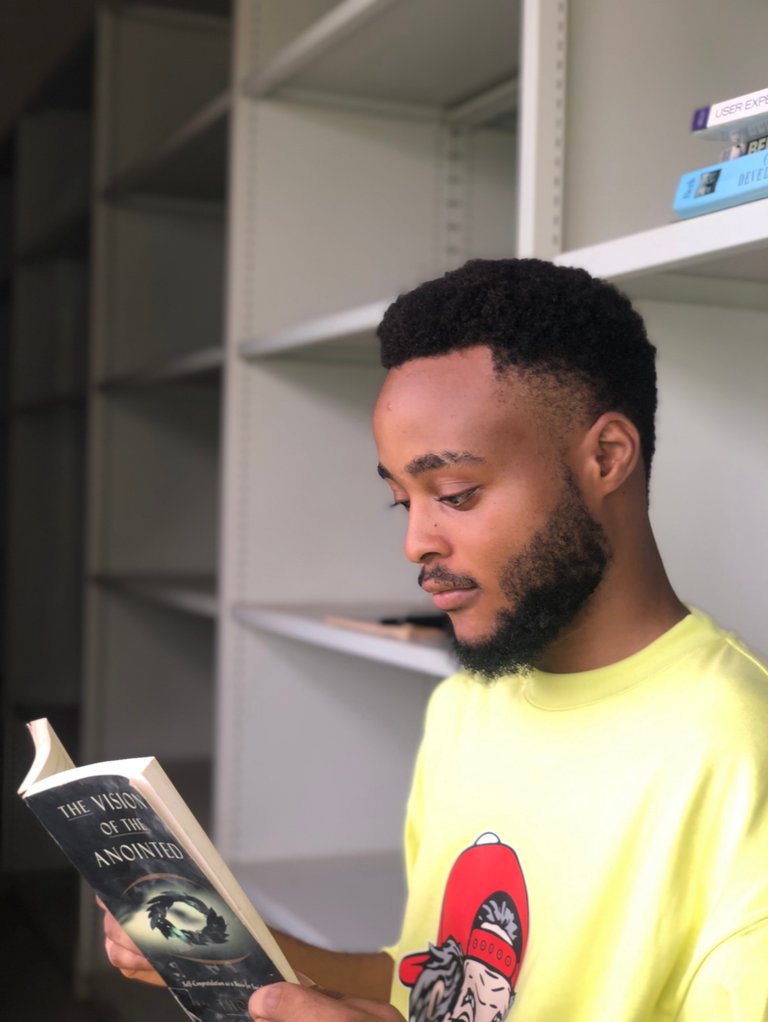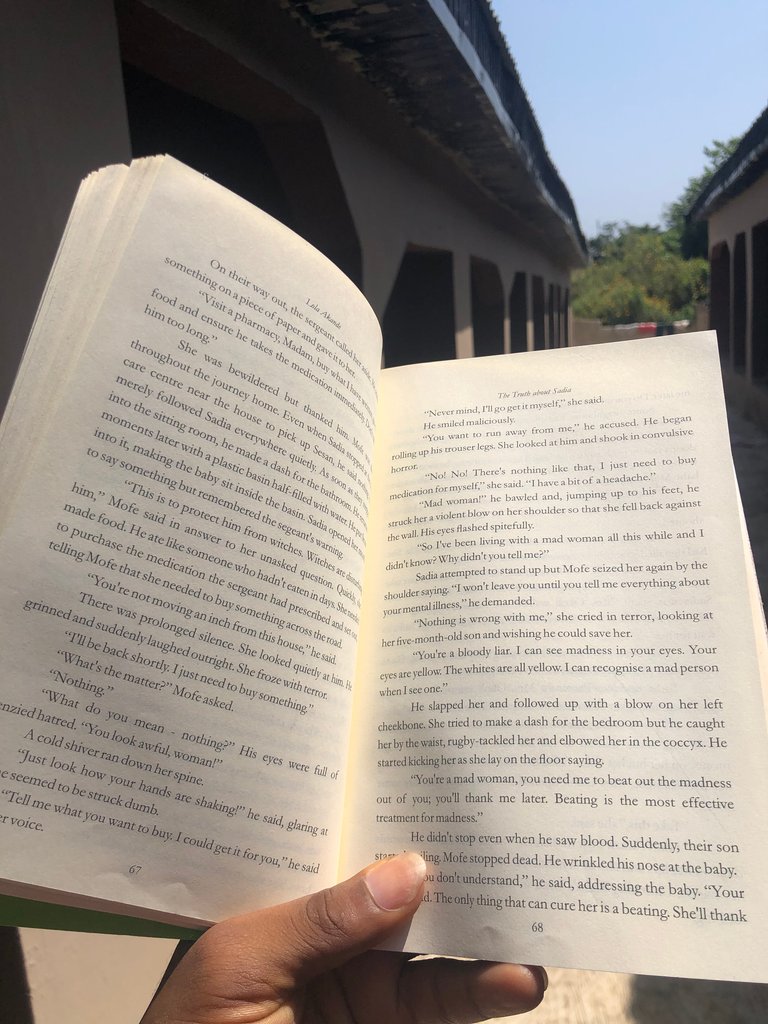
We are in the 21st century, where we have many female writers, exploring different genres, winning awards, and not only promoting women writers, but all women around the world, by making their voices heard. Usually, women writers use their works to share their experiences. So, it is not surprising that most of their works explore oppression by the male gender. Their works explore all forms of feminism, which is why the feminist theory is the best framework to use when analyzing such works. Recently, my love for books has shifted to a new era- women authors, particularly African women authors. In this post, I'll review one of Nawal El Saadawi’s works. When it comes to African women authors it is almost impossible to make a list without including Chimamanda Ngozi Adichie and Nawal El Sadaawi. These two are giants, steering the literary sea with big paddles. In this post, I'll review “God Dies by the Nile by Nawal El Saadawi.
Nawal El Saadawi (1931) is a writer and novelist, recognized in Egypt, her home country, and also internationally. Just like most women authors, she is a fighter for women’s rights. Interestingly, Nawal El Saadawi didn't study literature or anything related to it at the university. She and her brother were educated together. She graduated from the University of Cairo Medical School in 1955. By profession, Nawal El Saadawi is a medical doctor. She later studied literature and started writing fiction. Once, she was imprisoned for criticizing the government. Luckily, she was released after the assignment of Sadat, the ruling president of Egypt at that time. God Dies by the Nile and Woman At Point Zero are some of her popular works.

Nawal El Saadawi’s God Dies by the Nile takes us on a profound exploration of corruption and oppression of the government on its citizens, using the fictional village of Kafr El Teen. Peasants toil day and night. Not only do they get exploited through tax, but they are also used, especially the women who are marked as prey and abused sexually.

The village of Kafr El Teen is ruled by the Mayor and his people who are of a high social status. The Mayor, The Village Guard, The village Barber, and the Sheikh are a bunch of corrupt oppressors, manipulators, and abusers, who are always active in pouncing on their victims. The mayor always gets what he wants, whether it is women or money. As long as he has his people to craft out a good plan for him, he gets it done.
The novel opens with the voice of Sheikh Hamzawi- a call to prayer. At the same time, Zakeya begins her day. She takes the buffalo from the pen to the farm, wearing a stern look. Upon arriving at the farm, she secures the buffalo, and starts her laborious task, wielding the heavy hoe from dusk till dawn. When Zakeya gets home at dark, her brother comes to stay with her. He shares the bad news- Neffisa is gone. Neffisa is one of the female characters who suffered at the hands of the Mayor and his crew. Because she is beautiful, the Mayor has eyes on her and does everything to make her his own. The village barber is always the perpetrator of his evil plans. He goes to Kafrawi, Neffisa’s father, and tells him that the mayor wants his daughter to work for him. Although he doesn't agree, after a few threats, he agrees. From there, Neffisa gets pregnant for the mayor, gives birth, and escapes Kafr El Teen.

As if that is not enough, the Mayor, greedy as he can be, set his eyes on Zeinab, Neffisa’s sister. He says “I cannot understand how Kafrawi manages to feed these girls.” Meaning, how does Kafrawi, a peasant, manage to feed and take care of beautiful girls? The Mayor decided that he wanted Zeinab for himself. As usual, he strategizes a plan to make her his own. They know that it'd be difficult to get to Zeinab if her father, Kafrawi is still in the picture. To make their job easier, they frame Kafrawi for murder and throw him into prison. Now that Kafawi is out of the picture, they made Zeinab start working in the Mayor’s house. The Mayor would have his way with her whenever she came.
These incidents caused psychological damage to Zakeya’s health. First, it was her brother, Galal who was forced to join the army at Sinai simply because the Mayor wanted to have his way. Next, Neffisa got impregnated and had to run. Kafrawi who got framed and thrown into prison. Now, Zeinab. Zakeya starts to hear voices and see things. Out of the blue, Galal returns from the army and marries Zeinab, cutting the Mayor’s chances of seeing her. This angers the Mayor and he does what he does best- have his way. He frames Galal for stealing from his house. Halal is thrown into the prison.
Galal's imprisonment was the last straw that broke the camel's back. Zakeya found herself walking towards the Mayor's house. She entered, picked up a hoe, and with all the strength in her hand, crushed his head. "He did not feel the hoe land on his head and crush it in one blow. For a moment before, he had looked into her eyes, just once. And from that moment, he was destined never to see, or feel, or know anything more." Zakeya killed the Mayor and buried him in the River Nile. Since the Mayor was considered the god of Kafr El Teen, hence the title "God Dies by the Nile".
The Prison
A prison is a place for criminals who have committed terrible crimes. The irony? In this novel, the prison is a tool for the Mayor to have his way. Who are those in the prison? Weak people whose voices are unheard. When Kafrawi gets thrown into prison, he shouts several times that he is innocent. Similarly, when Galal gets thrown into prison for stealing the Mayor’s money, he screams that he has never entered the Mayor’s house. But no one listens to them.
The Big Question
Throughout the novel, the Mayor exploits the inhabitants of Kafr El Teen, particularly Zakeya's family. He made them suffer, but instead of making them suffer, he died a quick death. Do you think this is poetic justice enough?
My Rating
This book gets a 4.5 out of 5 stars. I recommend it to every book lover.
Thanks for reading.


